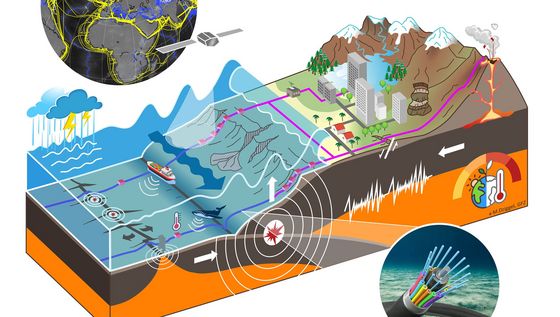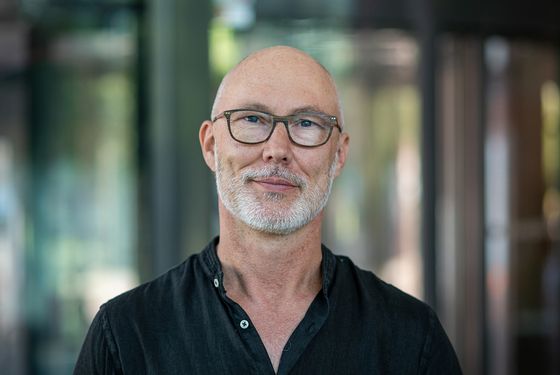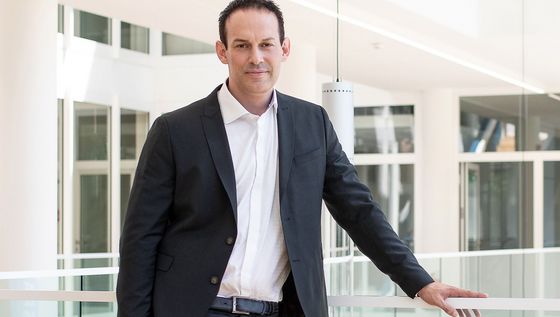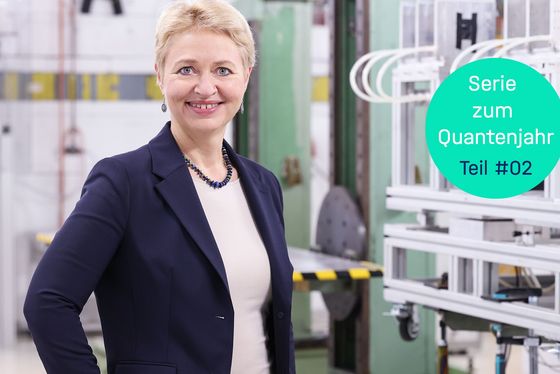|
||||||||
|
||||||||||||||||||||||||||||
|
|
What role can Germany and Europe play in the global race for AI technologies? This was the essential question at the AI Summit in Paris in early February. One key lever is increased investment - but money alone is not enough. With clever strategies, Germany can still catch up, says Michael Backes, CEO of the CISPA Helmholtz Centre for Information Security. In other news: Germany has voted. After the parliamentary elections, there will also be personnel changes affecting research policy in government, parliament, committees and politically appointed bodies. And last but not least: With a new initiative, our research centers are providing companies access to high-performance computers. Enjoy reading! |
|
|
|
|||||||||||||||||||||||
|
The Helmholtz Association invites proposals for joint research projects in the field of quantum use, aiming to expand the diverse research approaches to quantum technologies to include new, relevant and previously under-researched fields of application. The deadline for Helmholtz Centers to submit applications to the Helmholtz Head Office is June 16, 2025. To the call for proposals |
|
|
|||||||||||||||||||||||
|
|
|
The global network of telecommunications cables lying on the ocean floor offers unique potential for scientific use if the fibre-optic cables themselves are used as sensors or equipped with sensors. With SAFAtor (SMART Cables And Fiber-optic Sensing Amphibious Demonstrator), the GFZ Helmholtz Centre for Geosciences in Potsdam and the GEOMAR Helmholtz Centre for Ocean Research in Kiel are now building a research infrastructure that can be used to monitor the world's oceans. The Helmholtz Association is investing 30 million euros in the new research infrastructure. Over the next five years, the project partners plan to equip an undersea telecommunications cable with sensors that will continuously provide real-time data on temperature, pressure and bottom movement. It has not yet been decided where the cable will be laid. Possible regions around the world are being explored, including the Mediterranean, the Arctic and off New Zealand. The system can then serve as a model for future projects and support international initiatives to establish this measurement system on other cables with practical and scientific experience. GEOMAR has many years of experience in global deep-sea research and marine natural hazards. With its expertise in the development of underwater technologies, it will play a leading role in integrating the necessary SMART sensor technology into deep-sea cables. GFZ scientists will be primarily responsible for the development of coastal observatories, but will also be involved in the selection and equipping of a demonstrator cable with SMART sensors. In addition, GFZ will provide the infrastructure to process, archive and make available the newly acquired data according to the FAIR principles. FAIR stands for findable, accessible, interoperable and reusable.
Research team develops active substance against germ that destroys the cornea of the eye Lab Findings Support the Concept that Reducing Neuroinflammation Could Help Fight Alzheimer’s Nylon Eaters – Microscopic Helpers Recycle Plastic Waste |
|
A few years ago, someone from an adjacent working group asked me: “Tell me, Jörg, what do you actually do here at the UFZ?” I told her that I was responsible for various projects including the preparation and implementation of sampling campaigns, mainly on rivers in Germany and abroad, and therefore worked a lot in the field. I always have to deal with new situations on site. And all over Europe. Sometimes even in Africa or China. Or – like last year – for a project focusing on pubs and hair salons in Leipzig. I always meet interesting people from other scientific institutions and have exciting contacts with “normal” people. If that’s not exciting, what is?
I can think of a million things. Locally and globally. As a resident of Leipzig, it is important to me that the city remains as livable as it (still) is and that it continues to prepare itself for the climate changes that are already noticeable (more hot days per year, droughts). Leipzig’s alluvial forest also plays a very important role. It is one of the largest preserved alluvial forests in Central Europe and is of great importance, not only for the city’s climate. Unfortunately, politicians don’t always make the right choices when it comes to preserving this vital landscape. That’s why I would financially support the numerous projects in which the UFZ and other scientific institutions, not to mention numerous private interest and environmental groups, are involved and doing great work. Another very important aspect to me would be (environmental) education: that people get more in touch with their environment again and realize how important a healthy environment is for our mental and physical health.
Maybe with all the billionaires in the world. I would try to convince them that their money (used properly) could do a lot of good, which would also benefit them in the long run. Especially their descendants. But they probably wouldn’t take me seriously. So, it would be better to talk to Maja Göpel about what else can be done to convince society, politics and business that we (must) achieve a transformation towards more sustainability and more justice. |
|
|
|
Artificial intelligence and cybersecurity, along with the methodological breakthroughs that these fields make possible, are the main drivers of innovation and economic growth in the 21st century. This insight is leading to concerted action worldwide, such as the US project Stargate, which has an investment volume of up to 500 billion dollars. Global IT companies in the US and increasingly in China are leading the way: while according to OECD figures the US invested around 54.8 billion dollars in AI start-ups in 2023, China invested 18.3 billion dollars and Germany only 2.2 billion dollars. Germany runs a serious risk of losing this crucial part of value creation in the long term. The preservation and sustainable growth of prosperity in Germany and Europe depends to a great extent on whether we catch up internationally in terms of innovating in these key fields and taking on a leading role. As such, the new German government will face a major challenge. The decisive factor for competitiveness will be disruptive advances in the methodological foundations of trustworthy information processing and their translation into novel applications. It is precisely such advances that have been revolutionizing our lives for years and are having exponential effects. They culminate in the “winner takes all” principle: conceptual breakthroughs in AI lead to such massive improvements in functionality, performance and costs that applications and new markets previously considered unrealistic are suddenly possible, while many existing approaches are rendered obsolete virtually overnight. The analogy of the transition from the horse-drawn carriage to the automobile comes to mind. The model of pure technology transfer, which has often been postulated by politicians in Germany and practiced in the past, falls short because it fails to recognize conceptual progress as a decisive element of innovation chains that deliver sustained success. To continue with the analogy, it focuses on faster horses instead of devoting all its energy to designing the automobile and tapping its possibilities. Germany and Europe must have the courage to be among the world leaders in AI and cybersecurity research. To do so, the new German government will need to address various issues. The focus must be on funding in-depth research that is not only geared to current needs. We need the courage to radically reduce bureaucracy and quit funding initiatives that do not meet international standards of excellence. Instead of short-term transfers of established concepts, conceptual innovations and subsequent value creation are the key. We will also need lighthouse initiatives across disciplines and real-world examples of how to turn cutting-edge research into value creation. Researchers who uphold the highest international standards must be the content drivers of a constantly improving system that cooperates with ambitious and tech-savvy entrepreneurs and investors. One such initiative is the collaboration between CISPA and the European School of Management and Technology. By combining our expertise, we aim to establish a leading European ecosystem that achieves real technological breakthroughs and efficiently converts them into economic value. |
|
|
|
|
Werner Heisenberg and Erwin Schrödinger had barely succeeded in taking the first step in the development of quantum mechanics when the second, which is fundamental for understanding everything from the universe to superconductivity, was taken. In the following article, physicist Beate Heinemann, Research Director at the Deutsches Elektronen-Synchrotron DESY, explains exactly what this second quantization was all about. |
|
Published by: Helmholtz Association of German Research Centres, Anna-Louisa-Karsch-Str.2, 10178 Berlin Editors: Sebastian Grote, Franziska Roeder, Martin Trinkaus Photo credit: Phil Dera (Editorial) No subscription yet? Click here to register If you no longer wish to receive our newsletter, simply click here: Unsubscribe © Helmholtz
|
![[Translate to Englisch:] [Translate to Englisch:]](https://www.helmholtz.de/assets/helmholtz_gemeinschaft/_processed_/7/8/csm_Martin_Trinkaus_Monthly_600x600_02_23e1fa7729.png)



